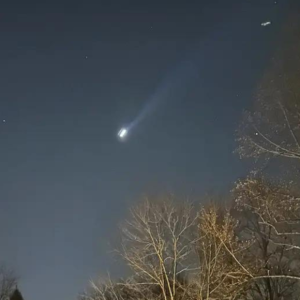
Dear PAO,
Recently, there has been an increase in news reports about criminal activities committed by minors. It is unfortunate to see that most of these minors appear to escape accountability for their actions, despite the degree of vileness in their acts. Is there an instance where these minors can be held criminally liable for crimes that they may have committed?
Elvira
Dear Elvira,
The State recognizes the special condition or status of children who, at their young age, are still undergoing development as a person on various aspects, such as but not limited to physical, mental, emotional, and psychological. In view thereof, the State has a different standard on dealing with a child who is alleged, accused of, or adjudged as having committed an offense under Philippine laws — also known as child in conflict with the law (CICL). This different standard is embodied in Republic Act (RA) 9344 or the Juvenile Justice and Welfare Act of 2006. Section 6 of the said law provides:
“SEC. 6. Minimum Age of Criminal Responsibility. – A child fifteen (15) years of age or under at the time of the commission of the offense shall be exempt from criminal liability. However, the child shall be subjected to an intervention program pursuant to Section 20 of this Act.
“A child above fifteen (15) years but below eighteen (18) years of age shall likewise be exempt from criminal liability and be subjected to an intervention program, unless he/she has acted with discernment, in which case, such child shall be subjected to the appropriate proceedings in accordance with this Act.
“The exemption from criminal liability herein established does not include exemption from civil liability, which shall be enforced in accordance with existing laws.”
Based on the foregoing, a child, meaning a person under the age of 18 years, is generally exempt from criminal liability. However, a child aged 16 to 17 can be held criminally liable when he or she acted with discernment. Now, when is a child considered as one who acted with discernment? This was explained thoroughly by the Supreme Court in the case of CICL XXX v. People of the Philippines (GR 238798, March 14, 2023, Ponente: Associate Justice Rodil Zalameda), to wit:
“1. Discernment is the capacity of the child at the time of the commission of the offense to understand the difference between right and wrong and the consequences of the wrongful act.
“2. The task of ascertaining discernment is undertaken preliminary by a social worker, and finally by the court. The determination of discernment shall take into account the ability of a child to understand the moral and psychological components of criminal responsibility and the consequences of the wrongful act; and whether a child can be held responsible for essentially antisocial behavior. The assessment of a social worker is merely evidentiary and is not binding upon the court. Ultimately, the court finally determines discernment, based on its own appreciation of all the facts and circumstances in each case.
“3. In our jurisdiction, there is no presumption that a minor act with discernment. The prosecution must specifically prove as a separate circumstance that the alleged crime was committed with discernment. For a minor at such an age to be criminally liable, the prosecution is burdened to prove beyond reasonable doubt, by direct or circumstantial evidence, that he acted with discernment.
“4. In determining discernment, courts shall consider the totality of facts and circumstances in each case. Such circumstances include, but are not limited to: (i) the very appearance, the very attitude, the very comportment and behavior of said minor, not only before and during the commission of the act, but also after and even during trial, (ii) the gruesome nature of the crime, (iii) the minor’s cunning and shrewdness, (iv) the utterances of the minor, (v) his overt acts before, during and after the commission of the crime, (vi) the nature of the weapon used, (vii) his attempt to silence a witness, and (viii) his disposal of evidence or his hiding the corpus delicti.”
Thus, ultimately, our courts will decide whether a CICL aged 16 or 17 years old can be held criminally liable for his or her act. This will depend on the totality of the facts and circumstances of the case, from which the question of whether or not the concerned CICL acted with discernment can be determined. In the affirmative, the court shall proceed with diversion or court proceedings, as the case may be. In either case, the court shall still take into account the CICL’s condition and best interest.
We hope that we are able to answer your queries. This advice is based solely on the facts you have narrated and our appreciation of the same. Our opinion may vary when other facts are changed or elaborated.
Thank you for your continued trust and support.
Editor’s note: Dear PAO is a daily column of the Public Attorney’s Office. Questions for Chief Acosta may be sent to [email protected]







